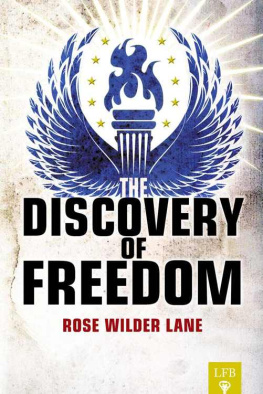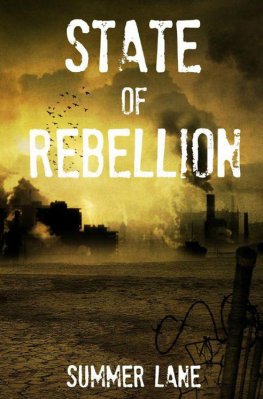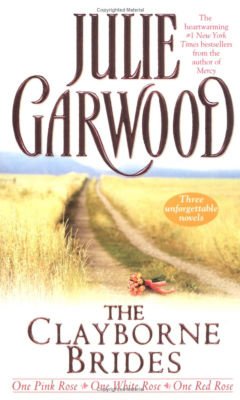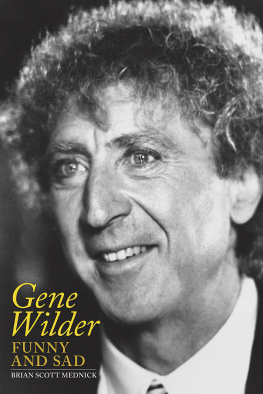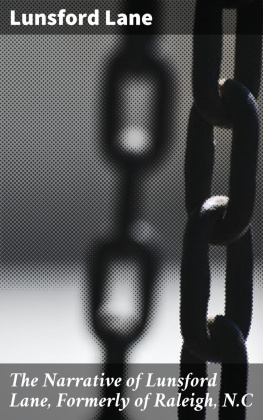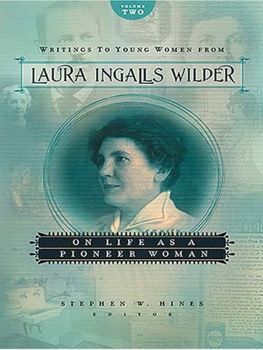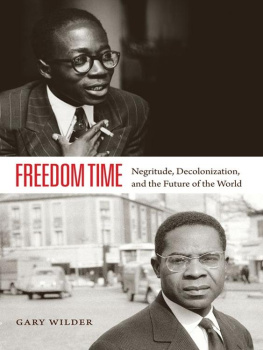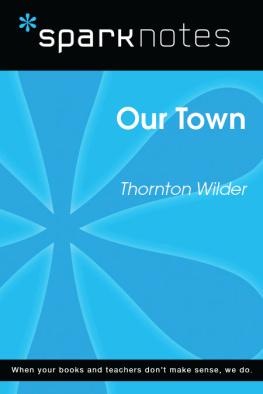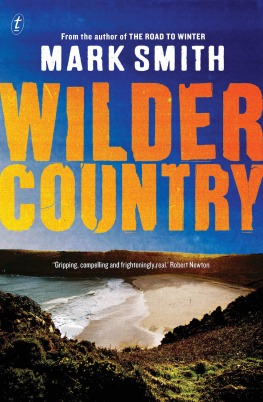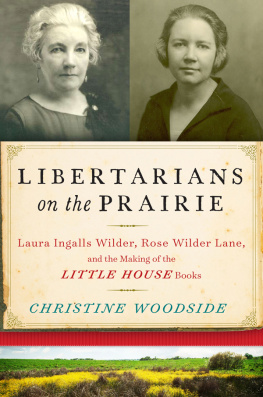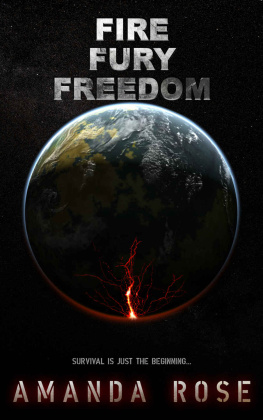Rose Wilder Lane - The Discovery of Freedom (LFB)
Here you can read online Rose Wilder Lane - The Discovery of Freedom (LFB) full text of the book (entire story) in english for free. Download pdf and epub, get meaning, cover and reviews about this ebook. City: China, Lima, China, year: 1967, publisher: Laissez Faire Books, genre: Science. Description of the work, (preface) as well as reviews are available. Best literature library LitArk.com created for fans of good reading and offers a wide selection of genres:
Romance novel
Science fiction
Adventure
Detective
Science
History
Home and family
Prose
Art
Politics
Computer
Non-fiction
Religion
Business
Children
Humor
Choose a favorite category and find really read worthwhile books. Enjoy immersion in the world of imagination, feel the emotions of the characters or learn something new for yourself, make an fascinating discovery.
- Book:The Discovery of Freedom (LFB)
- Author:
- Publisher:Laissez Faire Books
- Genre:
- Year:1967
- City:China, Lima, China
- Rating:3 / 5
- Favourites:Add to favourites
- Your mark:
- 60
- 1
- 2
- 3
- 4
- 5
The Discovery of Freedom (LFB): summary, description and annotation
We offer to read an annotation, description, summary or preface (depends on what the author of the book "The Discovery of Freedom (LFB)" wrote himself). If you haven't found the necessary information about the book — write in the comments, we will try to find it.
The Discovery of Freedom (LFB) — read online for free the complete book (whole text) full work
Below is the text of the book, divided by pages. System saving the place of the last page read, allows you to conveniently read the book "The Discovery of Freedom (LFB)" online for free, without having to search again every time where you left off. Put a bookmark, and you can go to the page where you finished reading at any time.
Font size:
Interval:
Bookmark:
THE DISCOVERY OF FREEDOM
THE DISCOVERY OF FREEDOM
Mans Struggle Against Authority
ROSE WILDER LANE

Copyright 2012 by Laissez Faire Books
Baltimore, Maryland
All rights reserved. Originally published in 1943 by the John Day Company, New York.
www.lfb.org
ISBN: 978-1-6212901-1-7
Cover art: Andrew Ascosi
Published under the Creative Commons Attribution License 3.0.
http://creativecommons.Org/licenses/by/3.0/

Part One
| I. |
| II. |
| III. |
| IV. |
| V. |
Part Two
| I. |
| II. |
| III. |
| IV. |
| V. |
| 1. |
| 2. |
| 3. |
| 4. |
| 5. |
| 6. |
| 7. |
| 8. |
| 9. |
| 10. |
| 11. |
Appendix
People schooled in the libertarian idea are prepared for the thesis that freedom is productive and protective of human rights, whereas despotism is neither. Many years ago, I first glanced through Rose Wilder Lane's The Discovery of Freedom and assumed that it was an eloquent statement of known truths, so surely there was nothing much to learn here. Maybe it was right for beginners.
In my second reading, some ten years later, I was struck by the depth and sweep of her argument and how it goes far beyond conventions. The problem, as she sees it, is not just the state, but rather, the universal penchant for repressing the human spirit. The state is only the most egregious form of authority.
Finally, on my third reading, I got it. This is a supremely radical and challenging work, one that essentially turns the world upside down. Nearly every expert on the topic of the history of civilization will tell you that the regime is what makes the difference between whether a nation rises or falls.
Lane takes another view entirely. She says it is not the regime but the absence of the regime that sets the human spirit in flight and permits it to create and make beautiful things out of the uncivilized world of the state of nature. She pictures the whole history of humanity as a struggle to be free of authority not just this or that authority but all authority.
The problem as she sees it is that men have a penchant to want to rule others. This expresses itself in every area of life in which we allow it to happen. In the voluntary sector of society, we are at least free to flee the impositions, and flee we must if we hope to create and build and prosper. But when authority grabs hold of the law, matters change, and we are no longer free to get away. That's when the human spirit is most threatened with death.
Lane tracks the struggle from the ancient world through modern times. The first attempt she identifies with begins with the prophet Abraham, who asserts a law independent of civil authorities and yet serves as a basis for judging all authority. This culminates with the arrival of the Christian faith, which heralded the individual and recognized his rights, not by virtue of membership in a tribe or political unit, but universally by virtue of one's very humanity. This attempt was subverted, however, with the union of church and state.
The second attempt that she chronicles will astound every reader without exception. She marks it with the life of Muhammad, founder of Islam. Here was another attempt to free humanity from the chains of earthly authority, and the results (as she sees them) were the flowering of civilization in arts, commerce, science, and scholarship. It is through Islam that Christendom discovered the writings of the ancients, derived its number system, found its technology, and cast off its forming bias against commercial dealings.
It goes without saying that this section, probably more than any in the book, will come as a revelation to readers raised in the current epoch, in which we Americans are constantly told about the inherent dangers of Islam. Why don't we know about this side of history? Lane's explanation is rather plausible: Our official history is Christocentric in the extreme, and we are thus denied much information about the period between the 7th and 12th centuries a gigantic swath of time in which most of the action took place outside the parameters of Christendom.
But of course, we know what happened to Islam. Its free spirit didn't last; it became consumed in war and war preparations and finally relented to authoritarian institutions. Its promise died.
What is the third great epoch? It began in the New World with the American colonies. In this section, Lane's prose soars to all-new heights. Her love of America has nothing to do with the jingoism we know all too well. It is a love of individualism, experimentation, risk, entrepreneurship, creativity, reward, and the inspiration that comes with building a new civilization itself. What a hymn to our history she writes!
And note the date. This was written in wartime. There were censorship rules at the time, things you could and couldn't say. What might she have written about war authoritarianism that she did not dare to write? I think we can imagine. In fact, you can read between the lines. She saw America betraying its history, principles, and destiny. And what would she write today?
There is so much wisdom in this work, so much to challenge and surprise us. Lane was learned, passionate, and remarkably creative, and her prose is that of a well-honed professional writer and researcher. This book is a gift. Its lessons are for our time and all time.
Rose Wilder Lane (18861968) is famously the daughter of Laura Ingalls Wilder, whose childhood memories provided a series of childrens books that are collectively known as the Little House on the Prairie.
Within individualist circles, Lane is best remembered for her powerful essay and especially for her nonfiction book The Discovery of Freedom: Mans Struggle Against Authority (1943). In his historical overview entitled Radicals for Capitalism, Brian Doherty refers to Lane as one of the three furies of the libertarian movement, alongside her contemporaries Ayn Rand and Isabel Paterson. If so, Lane was the soft-spoken fury whose claim to that name springs from the passion for freedom she inspired in others.
Some have compared The Discovery of Freedom to a novel because of its flowing and captivating style. If so, then Authority is cast as the villain of history who pursues Freedom through time for nefarious purposes. In short, Lane chronicles the struggle between freedom and authority that has defined human history. In this, she foreshadowed the approach of the libertarian theorist Murray Rothbard, who viewed all of human history as a contest between liberty and power, from which liberty emerged as the irresistible force. He wrote, While the short-run prospects for liberty at home and abroad may seem dim, the proper attitude is that of unquenchable long-run optimism.
Lanes description of authority through time is straightforward:
They replace the priest by a king, the king by an oligarchy, the oligarchy by a despot, the despot by an aristocracy, the aristocrats by a majority, the majority by a tyrant, the tyrant by oligarchs, the oligarchs by aristocrats, the aristocrats by a king, the king by a parliament, the parliament by a dictator, the dictator by a king, the king by theres six thousand years of it, in every language.
Next pageFont size:
Interval:
Bookmark:
Similar books «The Discovery of Freedom (LFB)»
Look at similar books to The Discovery of Freedom (LFB). We have selected literature similar in name and meaning in the hope of providing readers with more options to find new, interesting, not yet read works.
Discussion, reviews of the book The Discovery of Freedom (LFB) and just readers' own opinions. Leave your comments, write what you think about the work, its meaning or the main characters. Specify what exactly you liked and what you didn't like, and why you think so.

